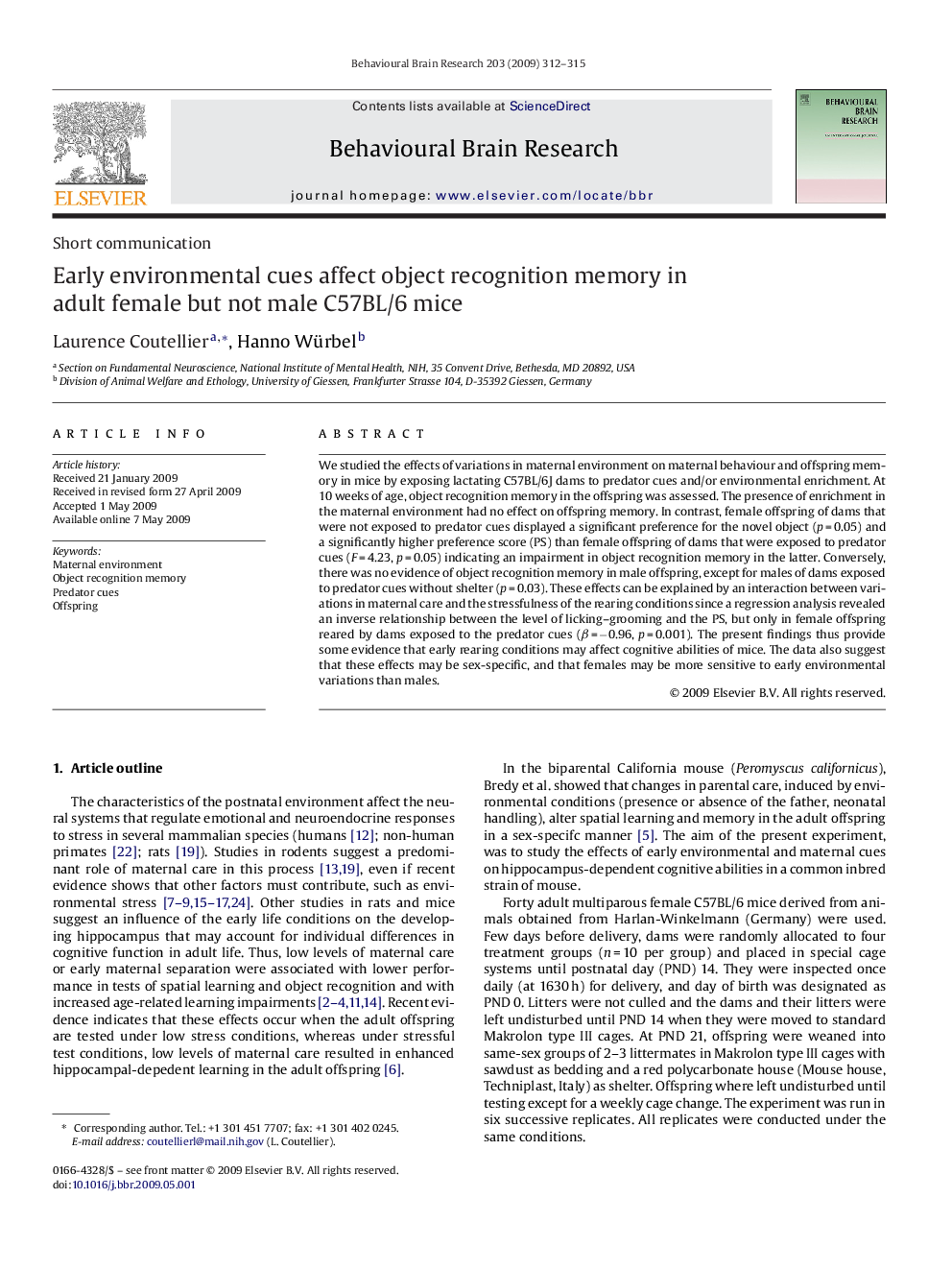| Article ID | Journal | Published Year | Pages | File Type |
|---|---|---|---|---|
| 4314673 | Behavioural Brain Research | 2009 | 4 Pages |
We studied the effects of variations in maternal environment on maternal behaviour and offspring memory in mice by exposing lactating C57BL/6J dams to predator cues and/or environmental enrichment. At 10 weeks of age, object recognition memory in the offspring was assessed. The presence of enrichment in the maternal environment had no effect on offspring memory. In contrast, female offspring of dams that were not exposed to predator cues displayed a significant preference for the novel object (p = 0.05) and a significantly higher preference score (PS) than female offspring of dams that were exposed to predator cues (F = 4.23, p = 0.05) indicating an impairment in object recognition memory in the latter. Conversely, there was no evidence of object recognition memory in male offspring, except for males of dams exposed to predator cues without shelter (p = 0.03). These effects can be explained by an interaction between variations in maternal care and the stressfulness of the rearing conditions since a regression analysis revealed an inverse relationship between the level of licking–grooming and the PS, but only in female offspring reared by dams exposed to the predator cues (β = −0.96, p = 0.001). The present findings thus provide some evidence that early rearing conditions may affect cognitive abilities of mice. The data also suggest that these effects may be sex-specific, and that females may be more sensitive to early environmental variations than males.
